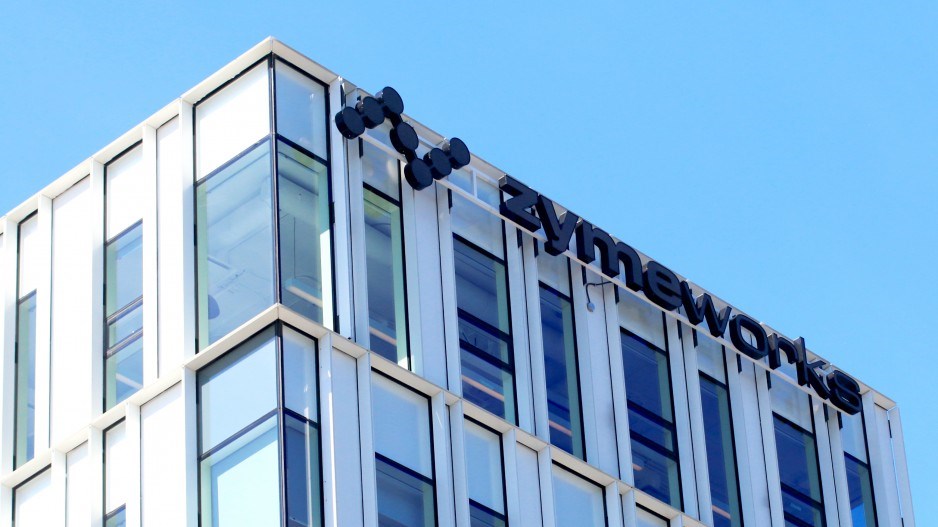Zymeworks Inc. (NYSE:ZYME) managed to shave its quarterly losses in the three months ending Sept. 30, just weeks ahead of the embattled B.C. biotech’s reincorporation in Delaware.
The Vancouver-founded company revealed Tuesday losses of US$47.8 million in the third quarter – down from US$60.6 million during the same period one year ago.
Despite its financials improving in the last quarter, Zymeworks' losses so far this year have totalled US$185 million. That's up from the US$172.7 million posted during the same period one year ago.
The latest earnings report comes just weeks after Zymeworks completed its plan to reincorporate in the tax-friendly American state of Delaware.
Its primary base of operations remains Vancouver.
The life sciences firm is best known for developing platforms that help other drugs more accurately identify and target cancerous cells.
Long a darling of the B.C. biotech sector, Zymeworks’ net losses grew to US$211.8 million in 2021 – up from losses of US$171.2 million a year earlier, according to financials released in February.
The company laid off about 25 per cent of its workforce and cut its senior management team in half just weeks before the release of those financials.
Founding CEO Ali Tehrani also departed the top job at that time, with former board member Kenneth Galbraith taking over as CEO and chairman.
Dubai-based minority shareholder All Blue Falcons FZE (ABF) soon after made an unsolicited bid to buy out Zymeworks in an all-cash deal worth US$773 million ($989 million at the time).
Zymeworks countered in June by adopting a “poison pill” strategy to fight off the acquisition bid. So-called poison pill strategies allow investors to purchase additional shares at a discount to stave off efforts by other parties to acquire a company through a hostile takeover.
With the poison pill digested and the reincorporation in Delaware official, Zymeworks announced Tuesday an exclusive license agreement with Jazz Pharmaceuticals plc (Nasdaq:JAZZ) to develop and commercialize Zymeworks’ cancer-fighting product zanidatamab, which is in the midst of clinical trials.
The deal has the potential to deliver payments up to US$1.76 billion in addition to royalties on its sales.
“With a zanidatamab partnership executed, our cash runway expected to be extended, and a growing portfolio of exciting preclinical product candidates, we are well situated to continue advancing the development of novel biotherapeutics and further progress towards our goal of addressing difficult-to-treat cancers with traditionally poor patient prognoses,” Galbraith said in a statement.




